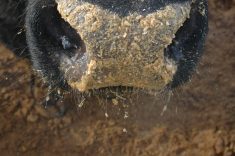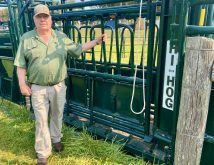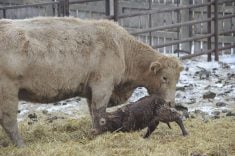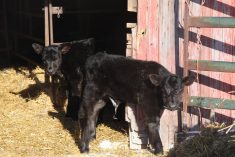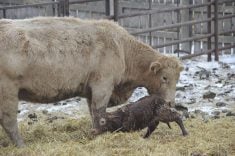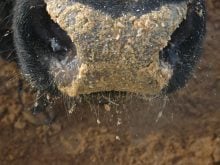Vaccinating cows for scours ahead of calving can build antibody levels in colostrum and increase calf health
Colostrum is key to calf health, particularly in the first weeks of life. However, preventing calfhood disease is a combination of many factors, including a clean environment and well-nourished, healthy cows with strong immunities.
Vaccinating cows ahead of calving can help build antibody levels in cows’ colostrum, says Dr. Steve Hendrick of the Coaldale Veterinary Clinic in Coaldale, Alta. In in many herds, that means scours vaccines.
“Some people also add BVD-IBR vaccines to that program. There are a few modified live vaccines on the market now that are labelled for use in pregnant cows, provided they were vaccinated previously and have some immunity already,” he says.
Read Also
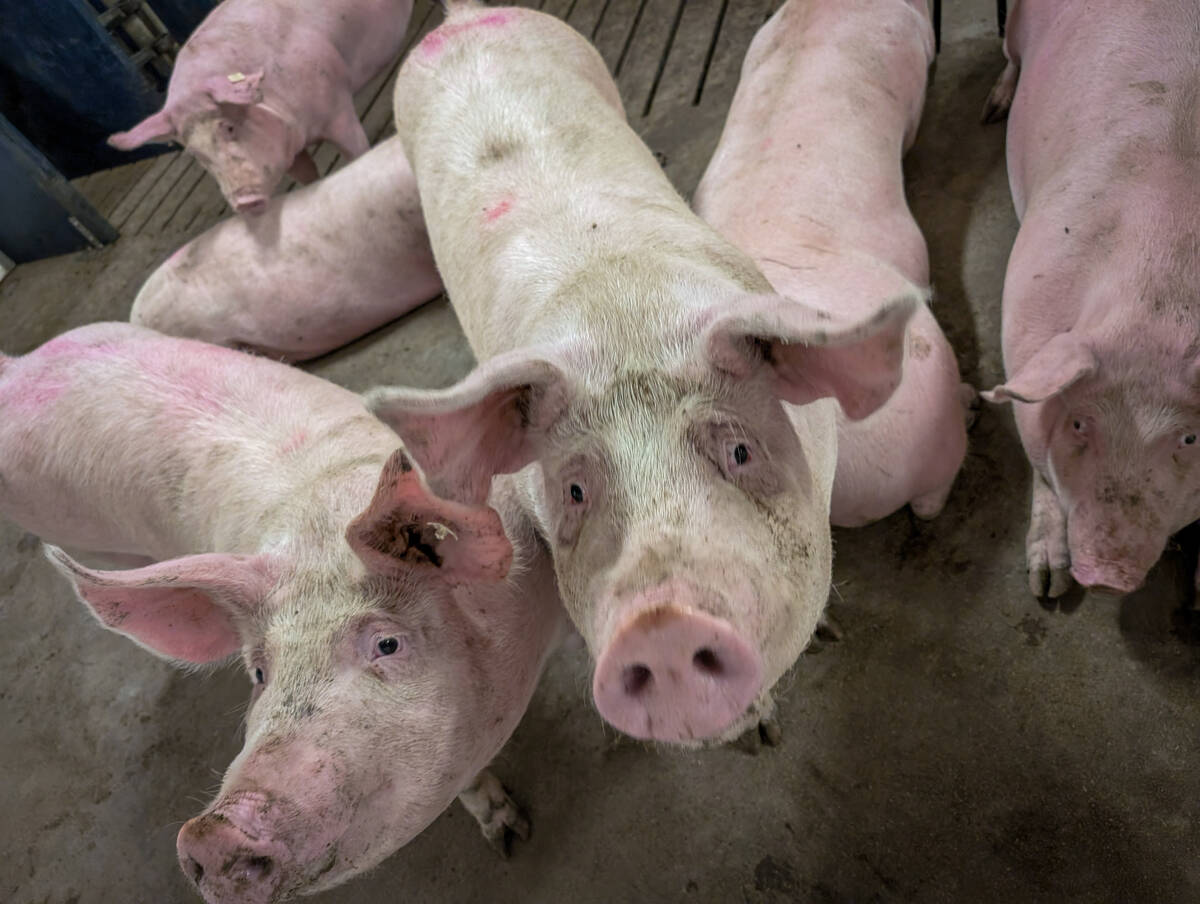
Pork sector targets sustainability
Manitoba Pork has a new guiding document, entitled Building a Sustainable Future, outlining its sustainability goals for the years to come.
“Some producers are giving BVD-IBR vaccines in the fall at preg-checking, but I prefer to see those vaccinations pre-breeding, to give ultimate protection to the fetus as it starts growing. But if vaccination is not convenient at that time — if cows are already out on pastures — it can be given prior to calving.
“I’d rather see it given then, rather than at preg-checking, because that’s too far away from protecting the future calf.”
Giving many different vaccines at once can overwhelm a cow’s immune system, Hendrick adds. This is particularly true if using more than one vaccine containing gram-negative bacteria.
“The more vaccines with gram negative bacteria that we give the cow at the same time could possibly be detrimental and potentially make her abort,” says Hendrick.
Scours vaccines have limitations and don’t guard against every type of scours. The best defense is having healthy cows with strong immune systems that produce strong calves that can take full advantage of colostrum antibodies.
Hendrick also reminds producers that there’s a difference between vaccination and immunization. Cows are sometimes unable to develop immunity even when vaccinated.
Vaccination should be tailored to the particular herd by working with a veterinarian on a herd health program, says Hendrick.
“Most veterinarians won’t charge for phone calls and advice if you have questions, especially if you are a regular client, purchasing medical supplies and utilizing the veterinarian’s services. He/she can help you tailor a vaccine program to your herd’s needs,” he says.
Caution is also needed if buyers don’t know the vaccination history of recently purchased cows and heifers.
“In these cases, we generally use a killed vaccine rather than modified-live, just to be safe, and then give them the modified-live after they’ve calved and before they are bred again,” says Hendrick.
A veterinarian should also be consulted when choosing a scours vaccine, some of which have different recommendations on timing of application to the cow. These can range from two to six weeks before calving.
Some need a two-shot series in the first year and an annual booster and some require a booster for any cows that are calving late in case their immunity wanes before they calve.
“I hesitate to recommend any certain type of vaccine, but some are oil-based and can be given farther ahead of calving,” says Hendrick.
“I prefer these, just because you are not putting heavily pregnant cows through the chute. The water-based vaccines must be given closer to calving” and immunity doesn’t last as long.
Oil-based vaccines can be given as far ahead as preg-check time in the fall. For heifers that need a booster to gain adequate immunity their first year, the booster can be given closer to calving.
Environmental conditions play a huge role in scours. Frozen ground if calving in January and February might mean fewer pathogens in the environment. Calving in March and April can be riskier because of wetter, muddy conditions.
Late calvers might benefit from another dose of vaccine if they are due to give birth in wetter spring weather.
“The immunity created against some of the bugs we vaccinate for in scours is fairly short-lived,” Hendrick says. “Some of the antibodies they produce don’t last as long as we wish. Boostering at least on an annual basis could help maintain immunity.
“If you skip a year or two during the life of a cow and then come back with another vaccination, it may not give as much protection. You need to start over with a two-shot series.”





